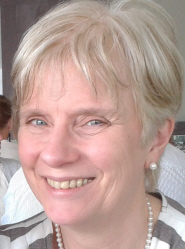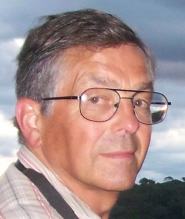Professors Max Headley and Judy Harris, both from the School of Physiology and Pharmacology, were selected alongside other eminent individuals from a range of high-profile organisations such as the European Commission, the NHS, the Government, research councils and medical charities.
A judging panel chose the top 100 to give a broad picture of the many different ways people work with science, making valuable contributions across UK society and the economy.
To identify its final list, the Science Council organised a competition around 10 different ‘types’ of scientist roles. High-profile names on the list include Sir Paul Nurse, President of the Royal Society, television presenter Professor Alice Roberts and Professor Dame Sally Davies, Chief Medical Officer at the NHS.
Bristol’s Professor Max Headley was named as a ‘policy maker scientist’ and was recognised for heavily influencing the science policy landscape, having volunteered his expertise throughout a number of government engagement processes.
Currently he is working on the development of guidance supporting the latest version of the Animals (Scientific Procedures) Act 1986 Amendment Regulations 2012, having worked for over a decade in the development of the relevant EU Directive and UK legislation. Professor Headley is a member of the Physiological Society policy committee and also sits on the council of Understanding Animal Research.
He said: “The Science Council’s selection announced today came as a total surprise – and I was more than a little taken aback at being cast alongside such eminent policy makers. Achieving policies that permit flexible animal-based research, while at the same time supporting animal welfare, is vitally important to the life science sector.
“It is of course hugely rewarding to see that my input into this area has been appreciated on a broad front, but it’s clearly also the case that the sector’s input to national policies has been based on far more than my own contribution. Many colleagues right across the life science sector have contributed much, and I hope that the sector recognises the teamwork that has made for the successes achieved.”
Professor Judy Harris was named as a ‘teacher scientist’ and was recognised for championing higher education teaching as a profession through international collaborative projects and workshops. She serves on the Physiological Society’s Education and Policy Committees and Council, and is Deputy Chair of the Education and Outreach Committee.
She said: “I am delighted to have been included in the Science Council's list of 100 leading practising scientists. Educating and training future generations of scientists, and encouraging and recognising the skills of those working in this area, is a critical - but sometimes overlooked - aspect of science, so it's wonderful that the Science Council have included the category of the 'teacher scientist' within their award list. I hope that this will send a really positive signal to all teacher scientists both within and outside higher education, and to the organisations within which they work.”
The Science Council has published the list to challenge what they describe as ‘the UK’s narrow and old fashioned view of science’.
Chief executive of the Science Council, Diana Garnham, said: “It is vital that this narrow vision is challenged urgently because it is inhibiting education policy, the career ambitions of young people and investment in developing the skills we need to deliver a world class economy.”
Member organisations and other partners were invited to nominate individuals for each of the categories of '10 types of scientist’ identifying individuals who are currently engaged with UK science that other scientists might look to for leadership in their sector or career.
The Science Council was seeking to identify individual scientists who illustrated a commitment to the practice of science with integrity, who exercised professional skill and judgement in their work, and also contributed to their profession and the future of their subject through their leadership, for example through development of standards or best practice, supporting their professional body, volunteering or mentoring.
Professor Bridget Lumb, Head of the School of Physiology and Pharmacology, said: “Professors Max Headley and Judy Harris are committed to the scientific endeavour in its broadest sense. Both have had successful research careers, during which they maintained portfolios across all areas of academic activity. Over the last decade or more they have selflessly brought their expertise to support and advance the scientific community in areas including policy making and education.
"I'm delighted that their significant contributions have received the recognition they rightly deserve. It's commendable that two awards have been made at one institution and I'm extremely proud that they are both in the same school - Physiology and Pharmacology.”
For further details and the full list, please see the Science Council’s website.

